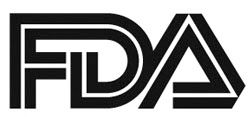FDA Grants Priority Review to Selumetinib for Neurofibromatosis Type 1 in Pediatric Patients
A New Drug Application has been accepted and granted priority review by the FDA to the investigational agent selumetinib for the treatment of patients ≥3 years old with neurofibromatosis type 1 and symptomatic, inoperable plexiform neurofibromas, according to a press release from AstraZeneca and Merck.

A New Drug Application (NDA) has been accepted and granted priority review by the FDA to the investigational agent selumetinib (AZD6244) for the treatment of patients ≥3 years old with neurofibromatosis type 1 (NF1) and symptomatic, inoperable plexiform neurofibromas (PNs), according to a press release from AstraZeneca and Merck.1
The priority review granted was based on positive results from the phase II SPRINT trial (NCT01362803) from the National Cancer Institute (NCI) Cancer Therapy Program (CTEP). Results were published in theNew England Journal of Medicine.
The results from phase II SPRINT trial showed a response rate of 72%, which confirmed a prior response rate of 71%, and most responses were sustained for at least 6 months. Thiry-six (72%) patients achieved a partial response (PR), and 12 (24%) patients had stable disease. Additionally, 32 out of 34 patients that were re-staged 4 months later had confirmed PRs. Selumetinib was given for a median of 19.5 cycles (range, 0-29).
The most common adverse events (AEs) included gastrointestinal toxicities, creatine phosphokinase increase, rash, and paronychia. Of the 50 patients, 12 required a dose reduction and 4 patients discontinued treatment due to grade 3/4 AEs that may have been related to treatment.
Investigators saw improvements in pain, motor function, and quality of life, based on both function and patient-reported outcomes perspectives. The median for pain intensity was 3 out of 9 (P< 0.0001), at baseline. Additionally, the pain interference index showed the 28 patients had a mean score > 0/6 at baseline, as reported by parents, and 20 subjects, according to the patients themselves (P<0.01). Also at baseline, motor function in 33 patients had strength or range of motion deficit. Plexiform neurofibroma volume also decreased in volume to 27.7% as a resulted of treatment with selumetinib.
Responses were durable with selumetinib in pediatric patients with NF1 and symptomatic, inoperable PNs. The MEK 1/2 inhibitor was generally well tolerated and led to improvement in functional and PRO endpoints.
The SPRINT trial enrolled 50 patients with NF1 and inoperable PNs between ages 2 and 18 years old with at least 1 PN-related morbidity. PN-related morbidities were assessed with standardized evaluations after every 4 cycles. Patients received the recommended phase II dose of oral selumetinib 25 mg/m2twice daily on a continuous 28-day cycle until either disease progression or intolerable toxicity.2
The primary endpoint included complete and partial response rate, and patient responses were evaluated by volumetric MRI. Secondary endpoints included the impact of treatment on pain and quality of life, safety, and pharmacodynamics.
The median age of patients enrolled in SPRINT was 10.2 years (range, 3.5-17.4). Thirty patients were male, and 21 patients had progression of disease at baseline. Investigators also noted disfigurement in 44 patients, motor function difficulties in 33 patients, and pain in 28 patients at baseline. PN-related morbidities included airway issues (16/50), vision troubles (10/50) and bowel/bladder dysfunction (10/50), and other morbidities (9/50)
Selumetinib inhibits the MEK enzyme in the RAS/MAPK pathway, which is associated with cancer cell growth, as well as proliferation, in a number of different tumor types. One in 3,000 to 4,000 individuals are effects by NF1. This incurable genetic condition is caused by a spontaneous or inherited mutation in the NF1 gene. Symptoms include soft lumps on or under the skin and skin pigmentation. About 30% to 50% of patients with NF1 have tumors develop on the nerve sheaths or plexiform neurofibromas.
Plexiform neurofibromas cause other clinical issues, including pain, motor dysfunction, airway dysfunction, bowel or bladder dysfunction, and disfigurement. NF1 increases a patient’s risk of developing other cancers, such as malignant brain tumors, malignant peripheral nerve sheath tumors, and leukemia, and symptoms can begin as early as childhood.
In April 2019,selumetinib was granted a Breakthrough Therapy Designation by the FDA, and in February 2018, the agent received an Orphan Drug Designation. In August 2018, the MEK 1/2 inhibitor was also granted an EU Orphan Drug Designation by the European Medicines Agency and a Swissmedic Orphan Drug Status in December 2018.
This NDA is the first regulatory submission for a single-agent, oral MEK 1/2 inhibitor treatment to be accepted by the FDA for treatment of patients with NF1.
References:
- US FDA Accepts Regulatory Submission of New Drug Application for Selumetinib in Neurofibromatosis Type 1 (NF1) and Grants Priority Review. Business Wire web site. https://www.businesswire.com/news/home/20191114005242/en. Published November 14, 2019. Accessed November 14, 2019.
- Gross AM, Wolters P, Baldwin A, et al. SPRINT: Phase II study of the MEK 1/2 inhibitor selumetinib (AZD6244, ARRY-142886) in children with neurofibromatosis type 1 (NF1) and inoperable plexiform neurofibromas (PN). J Clin Oncol. 2018;36(suppl 15; abstr 10503). doi: 10.1200/JCO.2018.36.15_suppl.10503.